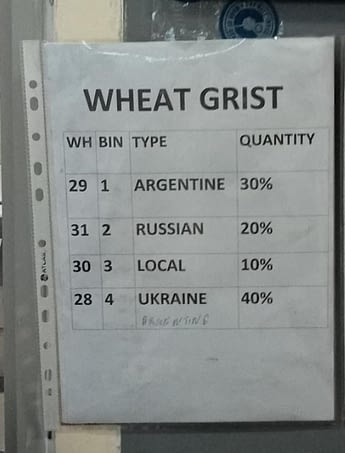By Susan Otieno
Over the years, wheat-based foods have increasingly been incorporated as part of Kenyan meals. One example is packaged bread, which has become a common feature on Kenyan breakfast tables with millions of loaves from industrial bakeries delivered to retail shops daily, countrywide. Another example is chapati — a round unleavened flat bread. Once reserved for special occasions, chapati can now be purchased from roadside venders throughout the capital Nairobi.
Millers and processors in Kenya are highly dependent on imported wheat to meet the strong demand for wheat-based food products. The conflict between Russia and Ukraine, two of the most important sources of imported wheat for Kenya, presents a major threat to millers and industrial bakeries. Prices for bread and chapati are increasing and may continue to increase. Governments and wheat-related industries are looking at short- and long-term options to reduce utilization of imported wheat. One short-term option is the blending of wheat flour with flour derived from locally available crops, such as cassava, millet or sorghum.
Record-high price of wheat

A sign at a flour mill in East Africa shows proportions of wheat from different origins (Argentina, Russia, Ukraine and local) used in that particular day’s production. (Photo: Alison Bentley/CIMMYT)
A visit to local industrial bakeries and wheat flour millers on the outskirts of Nairobi by International Maize and Wheat Improvement Center (CIMMYT) researchers confirmed the effects of record-high global prices of wheat. Global Wheat Program director Alison Bentley and senior economist Jason Donovan had conversations with leaders of industrial bakeries and millers, who gave insights into their grain demands, production processes and sales volumes.
One of the leaders of an established industrial bakery divulged that they use approximately 15,000 tons of wheat flour monthly to make baked products, with only 10% of the wheat obtained locally.
Click here to see more...